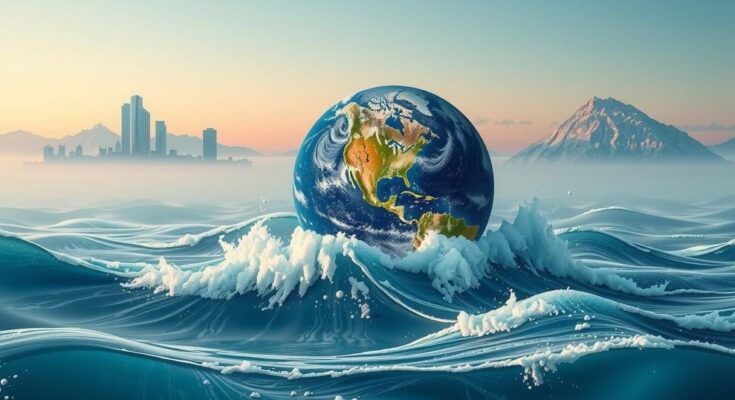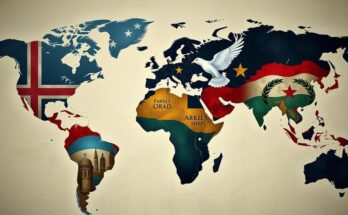The WEF’s Global Risks Report identifies armed conflict, misinformation, and environmental risks as major concerns for global leaders. Current geopolitical tensions, particularly in Ukraine and the Middle East, pose immediate threats for 2025, while misinformation undermines trust globally. Long-term risks, especially environmental challenges, dominate future outlooks, with young leaders prioritizing pollution. The report urges leaders to enhance collaboration to navigate an increasingly fragmented global order.
The World Economic Forum’s (WEF) Global Risks Report highlights armed conflict, disinformation, and environmental threats as pressing concerns for global leaders. Released prior to the annual meeting in Davos, the report is informed by the Global Risks Perception Survey, which surveyed over 900 leaders in September and October 2024. It emphasizes that current global dynamics resemble the divisions of the Cold War era.
State-based armed conflict emerges as the most critical immediate risk for 2025, influenced heavily by geopolitical tensions such as Russia’s invasion of Ukraine and ongoing conflicts in the Middle East and Sudan. The report questions the potential responses from the incoming U.S. administration toward these escalating conflicts and warns that outcomes could range from further escalation to agreements to freeze conflicts.
The report identifies misinformation as a significant short-term risk, complicating governance and society by eroding trust. The difficulty in distinguishing between AI-generated and human-created misinformation exacerbates these issues. Other urgent risks include armed conflict, societal polarization, and pollution, all of which pose challenges in the next two years.
Looking to the decade ahead, environmental risks dominate the landscape, with extreme weather events, biodiversity loss, and resource shortages identified as top threats. The report notes a consensus across survey groups that extreme weather is the foremost concern, with younger individuals particularly concerned about pollution, which ranked high among threats.
The WEF emphasizes an increasingly fragmented global context, warning that geopolitical tensions may strain multilateralism. Despite these challenges, leaders are urged to foster dialogue and collaboration to improve resilience and secure a sustainable future. WEF Managing Director Mirek Dušek asserted that the choices leaders make are pivotal in addressing vulnerabilities amidst rising tensions and a complex geopolitical environment.
The article discusses the findings of the WEF’s Global Risks Report, which assesses the major challenges facing the world as perceived by various global leaders. The context of armed conflict, misinformation, and environmental degradation reflects widespread concern about current and future risks affecting global stability. The upcoming Davos meeting serves as a platform for leaders to address these critical issues when discussing global governance, security, and climate resilience.
The WEF’s Global Risks Report underscores the growing complexities of our times, emphasizing armed conflict, misinformation, and environmental challenges as key global concerns. The pressing risks outlined in the report highlight a turbulent future unless global leaders prioritize collaboration and resilience. The anticipated fragmentation of global governance necessitates renewed efforts to foster international dialogue and collective action aimed at a sustainable and inclusive future.
Original Source: healthpolicy-watch.news




